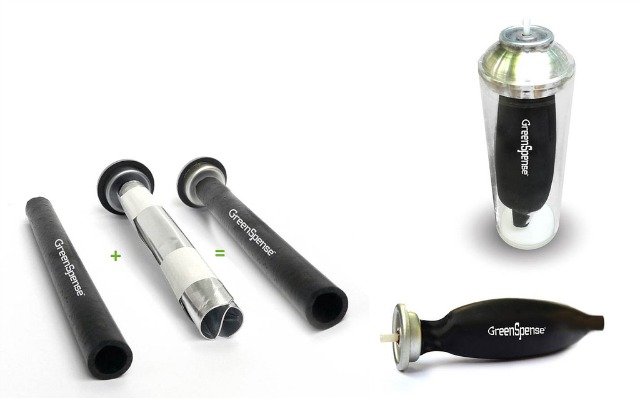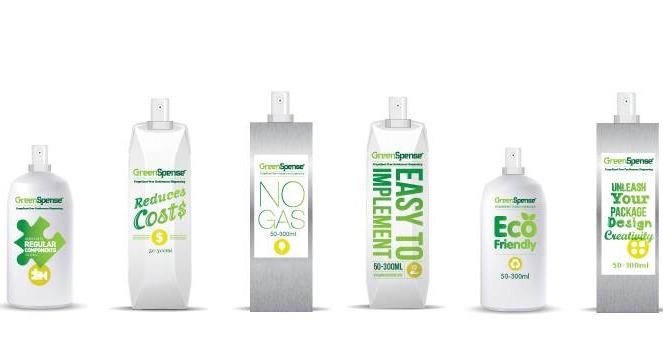They squirt, spray and lather. Some even give lifesaving bursts of medicine. But truth be told, the aerosol spray container hasn’t changed much in the last 60 years, says Gadi Har-Shai, CEO of the Israeli startup GreenSpense.
Traditional aerosols are polluting and dangerous. So he invented a new alternative, the eco-sleeve, using nanotechnology.
Spread the Word
• Email this article to friends or colleagues
• Share this article on Facebook or Twitter
• Write about and link to this article on your blog
• Local relevancy? Send this article to your local press
“This will definitely contribute to a better and safer world,” he tells ISRAEL21c.
Instead of getting propelled by compressed air in a metal container, the product is air-forced from a sleeve that sits inside any kind of container, much the same way a bagpiper squeezes air from the bladder of the instrument through the pipes.
“Imagine a flexible bag inside the product. Over the bag we have mounted a special sleeve that presses the bag in order to push material out,” explains Har-Shair.
“The special elastic sleeve is based on nano-technology and it is very thin while generating high pressure. There is zero pressure on the external container and all the pressure is directed to the center. Now we can eliminate the traditional metal container,” says Har-Shai.
This solution is less costly than metal, and could eliminate the hundreds of thousands of tons of volatile organic compounds and carbon emissions coming from aerosol cans each year.
Because the GreenSense sleeve squeezes the product inward rather than outward, the packaging can be made from any kind of material, including biodegradable plastic or recycled cardboard. The shape can even be square – something not possible in the past due to the physics of compressed air.
“You can have a square, or just about any shape –– not just cylindrical,” says Har-Shai.
Banishing ubiquitous aerosols
More than three billion aerosol cans around the world use a standard cylindrical metal canister surrounding an inner compartment, or bag, under extreme pressure. They’re everywhere.

“They are used in personal care, household products, pharmaceuticals and for technical products, nasal sprays, veterinary products and so on,” Har-Shai says.
“For personal items, we’ve got shaving creams, sun care, deodorants –– some 12 billion products produced every year around the world. This is a big industry that started around World War II but the methods remain the same,” he explains.
“The eco-sleeve mounts over standard pouches used with current dispensers,” he tells ISRAEL21c. “It generates high pressure to provide the usual consumer experience of continuous dispensing, replaces the gas, and as a result, eliminates the need for cylindrical, pressurized metal containers.”
Whereas aluminum aerosol cans cannot be recycled, Har-Shai says the eco-sleeve, made from rubber and other ingredients, can be downgraded to another use.
GreenSpense launched its eco-sleeve this year in Paris at the Aerosol & Dispensing Forum, while the company itself was founded in 2011 in the Misgav Trendlines incubator. Some $750,000 has gone into development so far, and the final product is expected to be ready by the fourth quarter of this year.
Dream clients include L’Oreal, Gillette and Beiersdorf, the company that owns Nivea. PepsiCo has expressed interest, says Bar-Hai.
“We got a lot of attention and have started discussions with major companies, and in parallel are continuing development,” says Har-Shai, an engineer with consulting and development experience at large Israeli companies including Iscar, Scitex and Objet.
The idea was his own. “I started asking myself questions about aerosols and eventually it rolled into a large project.”












